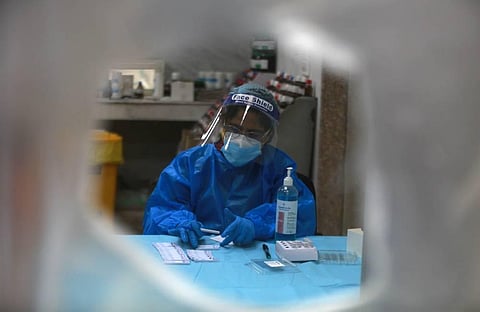

BENGALURU: Researchers from Indian Institute of Science (IISc) have developed a software tool 'AnamNet' to reveal the severity of lung infections in COVID-19 patients.
The study by researchers from the Departments of Computational and Data Science (CDS) and Instrumentation and Applied Physics at IISc in collaboration with colleagues from the Oslo University Hospital and the University of Agder in Norway, was published in the journal IEEE Transactions on Neural Networks and Learning Systems.
Using a unique neural network and deep learning and other image processing techniques, Anamnet looks out for specific abnormal features and estimates the damage in the lungs, and identify infected areas in a chest CT scan with a high level of accuracy.
The software is trained to 'segment' the scan as 'infected' and 'not infected'.
It basically extracts features from the chest CT images and projects them onto a non-linear space [a mathematical representation], and then recreates the [segmented] image from this representation. This is called anamorphic image processing,” Naveen Paluru, first author and PhD student in the lab of Phaneendra Yalavarthy, Associate Professor at CDS, was quoted in a release by the institute.
“We are currently focusing on making our software more robust to handle COVID-19 scans, but we are also looking to diversify to other common lung diseases like pneumonia, fibrosis and even lung cancer in the near future,” Yalavarthy added, suggesting that with some changes to the present design, the software could even be used to read brain scans.
The neural network in the app was also computationally less complex, which allowed the researchers to train it much faster to detect anomalies, it adds.
Being a lightweight software, AnamNet leaves just a small memory footprint.
Developers also created an app CovSeg so healthcare professionals can access the data on their smartphones.